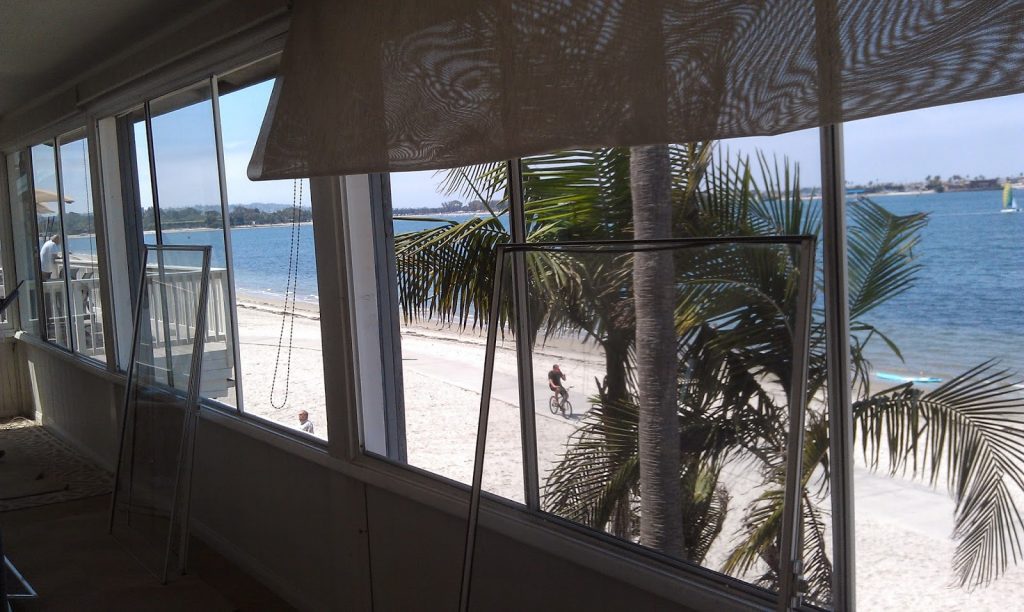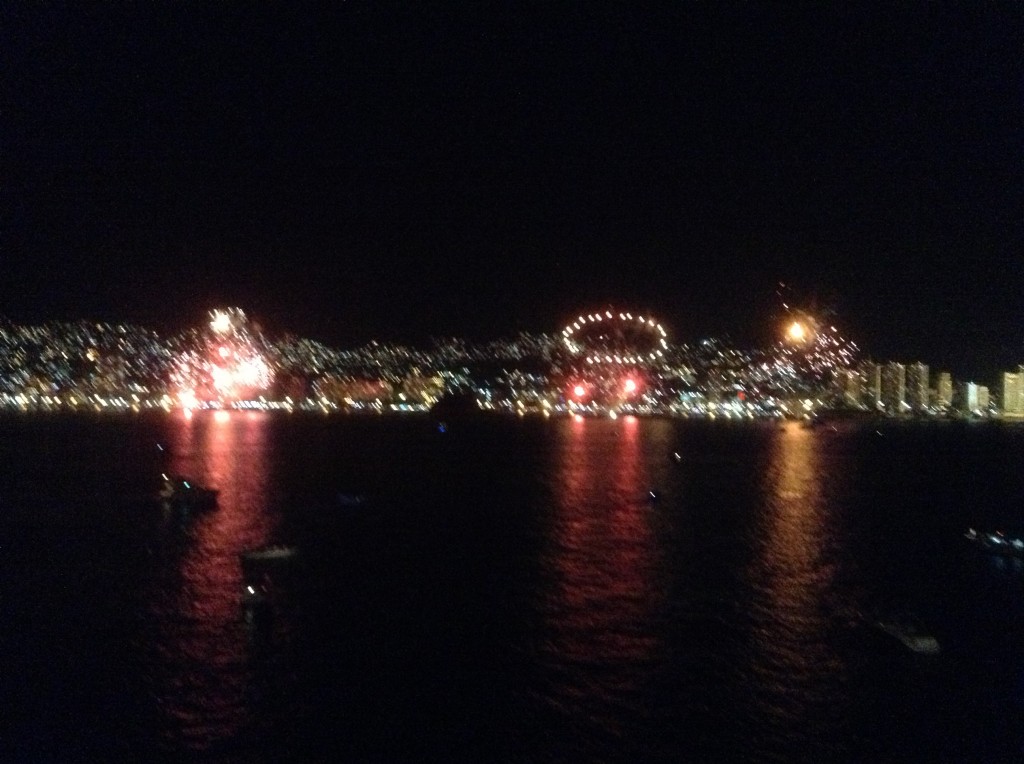I woke up this morning to sounds of engine growls, and having forgotten where I was, couldn’t figure out what was happening. Very often when cruising, my first reaction to movement or sound is “Uh oh! Is this the Big One?” Fortunately, it was just the sound of people and ship doing their work of getting us into port. Seattle, here I come!
Diary
Renewal
It’s a wonderful coincidence that the website revamp I have been working on with my talented web designers at BlueJay Tech should reach the launch pad during the Jewish High Holy Days. Evaluation, renewal and rededication can take many forms, both personal and professional.
So here I am, two years beyond the launch of The Mapmaker’s Daughter, my latest historical novel (and perhaps last–who knows?) I’m writing a lot, actually, though it would be hard to tell from the paucity of diary entries here in the last two years. But I am renewed and ready to go!
My writing these days is of two sorts. First, I am trying my hand at screenplays, getting some advice and assistance from my son Ivan Corona, who works with a Hollywood producer. The challenge of a new format that requires quite different skills has been fulfilling. I have lots of questions about my capabilities as a writer that I don’t have answers to yet: can I write without being able to say what a character is thinking? without being able to describe a scene in detail? to limit myself to very little more than dialogue and minimal other directions? So far so good, but far more important, so far so fun!
The other writing I do is for cruise lectures. In the last five years I have been traveling all over the world as a lecturer for several cruise lines. I have a catalog of about 75 lectures at this point (a list is elsewhere on this site), and I honestly can’t even remember the exact number of cruises I have been on except to say it is a lot and I have loved every minute of it. What’s up for me in 2018 you can see in the calendar section of the site.
And of course the great thing about writing books is that they are always there. Even if I don’t write another, I have four novels and one non-fiction book many people other than my friends and family think are pretty darn good, and they will just keep on being new whenever someone finds them.
Among my hopes for myself at this time of reflection on who I am and what matters to me, is a return to active involvement with this website as a way of keeping in touch with people I meet, and remembering the great joy I have had and can look forward to on my adventures in this world, which has blessed me with such abundance. Thanks for being part of it!

Hello Jewish Book Clubs!
I am deeply honored that THE MAPMAKER’S DAUGHTER has been chosen by the Jewish Book Council to be one of only a dozen or so books they are specifically recommending for the coming year to book clubs that are members of the National Jewish Book Club. If you are coming to my site as a result of hearing about it from the Jewish Book Council (or even if you’re not), I’d like you to know that I do my best to reach out to book clubs by personal visits in the San Diego area, or by phone if your group lives elsewhere. Just follow the link below to contact me!
Love the Curve!
Four years back, after the death of my beloved husband Jim, when I told people I was wasn’t writing anything, I was a little puzzled by the most common reaction. “Well, well, people said. “Just wait. You’ll be back to it again.” I guess what they meant was that it was just a matter of time until I was ready to behave like “myself.”
I know they were well meaning, but so are people who say off-base things at funerals about better places and the healing power of time, when there is no place or time but the terrible, awful now.
I wasn’t frozen in place. I had the months of his decline and inevitable death to ponder the post-Jim me, and when he died, I had far more important work to do than bury myself in the products of my imagination. It’s taken a long time to figure out why very nice, sweet people expressing confidence in me made me so angry. Really, it’s taken the work on the screenplay of my novel Penelope’s Daughter to bring this four-year hiatus into focus.
People seemed to think it would be comforting to reassure me that I would once again return to the familiar, the trusted, the tried-and-true. I could keep writing one, or a half-dozen more (who knows?) historical novels, and I certainly should, because after all, I’d gotten so good at it, no?
What? I used to think. Did they think I was somehow obligated to keep going, that I owed the world the fruition of every last idea I ever had for a book? (BTW, as a bit of advice for readers, don’t express disappointment about there being no book in progress unless you have read everything else the author has ever written. If not, there’s something that’s still new to you.)
But I digress….I didn’t have writer’s block. I never stopped loving writing. I still came up every week with great new ideas for another historical novel. But it turned out that “been there, done that” was my problem, even though it might have been what others thought was the solution.
When my son Ivan and I started collaborating on screenwriting, my synapses started tingling with the excitement of “never been there, never done that.” Figuring out how to write with only screen direction and dialogue (no thoughts, little description) was a challenge, as was distilling the story to 120 pages with lots of white space, as opposed to 333 more densely packed pages. And then, as I learned, there’s this thing in screenwriting called a “beat,” and though I’m still not sure exactly what it is, it has to do with keeping the kind of pace and tension that keeps moviegoers from thinking about the snack bar and the toilets. Novels can be a lot more leisurely.
Wow! What a learning curve this has been, and I haven’t been happier in a long time. Plus, it’s always a good sign when, after more revisions than I can count, I still LOVE my flying fingers, and wouldn’t at all mind doing one or ten (well maybe not ten) more revisions. And then, really, it’s just beginning. If we are lucky to sell the option, I’ll have more to learn, and if we actually get to production, even more.
It’s the learning curve. There just isn’t anything more exciting! Hope your lives are staying curvy too.
The Return of the Muse, Hollywood Style
Four years ago today, my life was up-ended by the death of my beloved partner and husband, Jim. I haven’t written a page of original fiction since then. It’s not that I’ve been dysfunctional (far from it), but more like a river that changes course after an earthquake.
It’s been a new life, and an exciting one.
I retired two years ago, and I have been getting better at play, although daily productivity seems to be pretty deeply wired in me. My big project has been traveling the world as a cruise lecturer, which sounds like heaps of fun–and absolutely is–but researching and preparing professional-quality lectures about which, in most cases, I start out knowing little more than it’s an interesting topic for a clientele that is both 1) intellectually curious, and 2) on vacation, is a massive amount of work. (Try diagramming that sentence!) Once on board, though, it’s champagne and first-class dining, and cool shore excursions, with just a little work now and again. The picture below is of me looking over my next lecture before heading out for a shore excursion on my Amazon cruise last November.
Figuring out how to hit a drive fairly consistently about 160 yards has been a pretty good accomplishment as well particularly since I had never swung a golf club until age 63, but with golf it always seems to be the case that a stride in one area is matched by humbling experiences in another. If I could just pull together the drive, fairway shots, short game and putting all in one hole….
And then there’s tennis, the best fun with girlfriends around, especially when there are mimosas afterwards!
But I know one thing for certain: I am happier when I have a project, and truthfully happier when I am juggling a few at a time. Which brings me to the subject of my title here.
It isn’t true that I have been doing no writing. I just am not inspired to start a new book, and kind of think I may not be for a good long while. But hey, I already have a number of books that not nearly enough people have read. And I have a son, Ivan Corona, who is a budding director, screenwriter and producer now working in partnership with a successful Hollywood producer. We’d already gotten most of the way to a polished screenplay for THE FOUR SEASONS, but turned our attention to PENELOPE’S DAUGHTER as our debut project at the beginning of this year. I wrote the screenplay on my own, and we are collaborating on the production. Now, within a few weeks, if all goes well, we will be ready to pitch it and, if all goes well, get it optioned and green-lighted for production later this year.
So yes, I have been writing, and it feels great! I think I’m going to like this latest reinvention of myself, and this beautiful, starstruck Muse who hovers above my desk. I’ll keep you all posted more often, now that there’s a writing me again to tell you about.
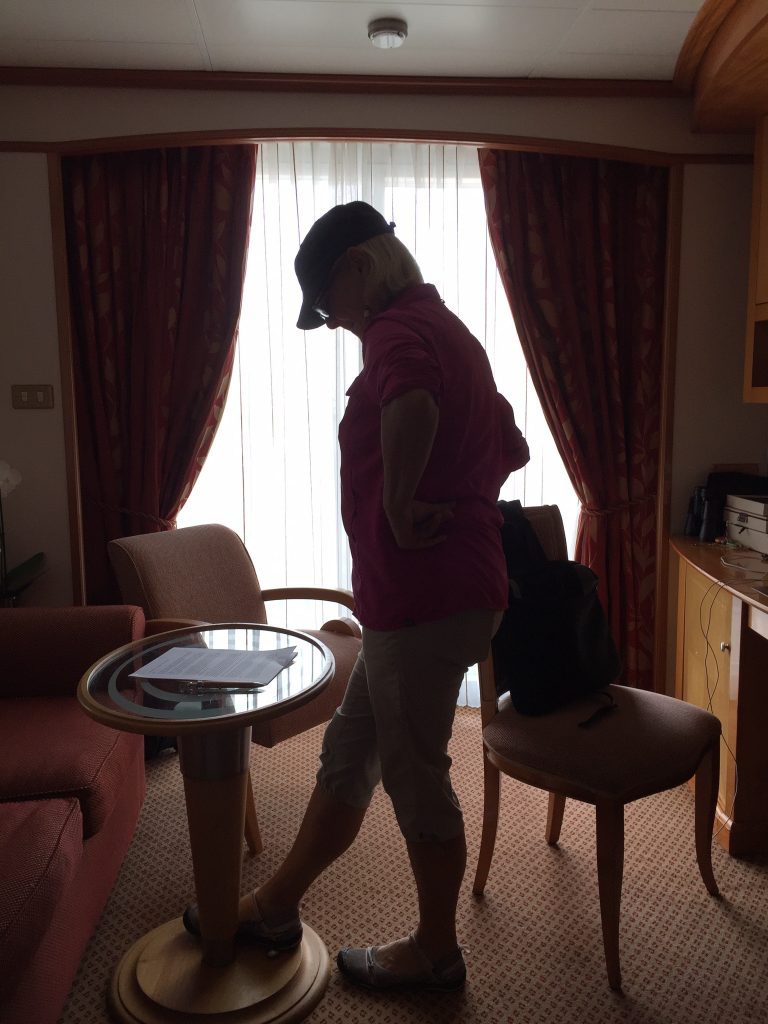
Musing
“Musing” is a funny word. At first it could be pictured as a stroke of the chin, or staring at–well, nothing, really. And then there’s
that lovely little creature, the Muse. Just as we can say we’re walking, cooking, writing, or whatever, it seems we should be able to say we are “musing” in that far more active sense of really inviting the Muse in, or more correctly, merging the rest of what we are with that force that compels us to create.
I am enjoying some of the former in this photo, taken in September in Greenland on a Silversea cruise where I was the enrichment lecturer. Two months later, for the first time in several years, I am doing a little bit of the latter, which I will honor with a capital “M” from now on. Specifically, I am feeling energized to dust off and rework the screenplay for The Four Seasons that my son Ivan and I worked on for a while about three years ago, before drifting off into other pursuits.
I expect that by the time we are all having to scratch out 2015 and change it to 2016 every time we have to date something, I will be actively, energetically Musing, not with a new novel, but with an exciting new outlet for creativity. My long-absent friend, the Muse, is beckoning me to come in to her world and stay a while.
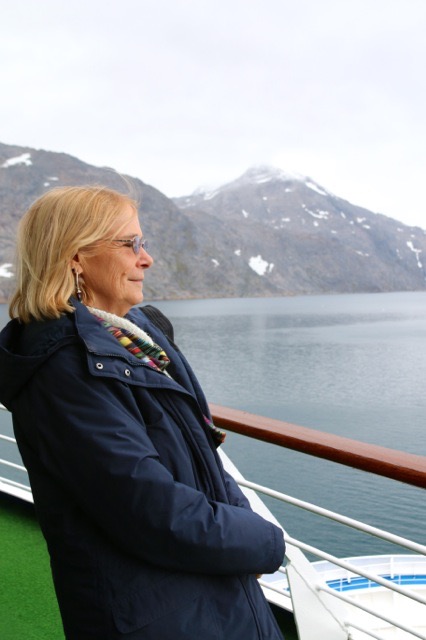
Still Reinventing!
Hello to returning website visitors and new! For those of you who don’t know, I have been taking a break from writing historical fiction, and am enjoying retirement with a new gig as a cruise lecturer. Here I am on the Prince Christian Sound in Greenland on a transit between Southampton and Montreal. Next up, a return to the Amazon, then a break for a few months until next summer. Writing soon? Maybe. Finding other forms of inspiration for the present.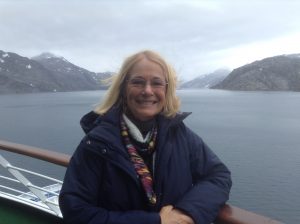
What I’ve Been Up To
Anybody out there wondering what I do with my time these days? If you are reading this, maybe there is!
I retired permanently (sort of) a year ago from my job as a professor at San Diego City College, and retired in a maybe /maybe not way from writing historical fiction, at least for a while. I loved both my professions so much that I always thought of myself as “getting” to do them, rather than “having” to, but enough is enough. I looked at both and decided I couldn’t see how either was leading me on a path that was invigorating and exciting. I wasn’t seeing how I could continue to grow, so I decided to stop.
I say “sort of retired” from teaching, for I can come back and teach a couple of classes a year if I want, and I do. I loved teaching, but chronic problems with my voice make speaking for a long time difficult. One class good, five classes impossible even with a mike in a small room.
As for the writing, I will always love to write, but it has been wonderful to tell myself I don’t have to. I have written four published novels and a fifth in draft, plus one non-fiction book. I have made my contribution, and though I might have more in me, this will be enough if it turns out I don’t want to “go there” again. You never know, though. I get a dozen ideas a week, and there are many other genres to try.
What I am doing now that IS fun and invigorating is lecturing on cruises. I have been crazy busy with this, cruising mostly with Silversea, but with some upcoming work for Oceania and Regent. I love speaking in a beautiful, state of the art auditorium, with an audience of people happy to hear what I have to say that will enrich their visits to the ports. I’ve been in South America, Asia, the Baltic, Transatlantic, Canada, and the Mediterranean, with lots more ahead if the fates allow.
Here I am, lecturing on a Baltic Cruise. Whatever your plans for the summer are, I wish you Bon Voyage!

The first Beach House Writing Salon that my friend and fellow author Caitlin Rother organized last fall was such a success–including one writer who got a publishing deal with one of the author faculty, who is an indie publisher–that she is offering another, with four much published writers as speakers and consultants to the participants, including me! It is an all-day affair at a beachfront house on Crown Point, and the number of attendees is limited to allow time for all sorts of casual conversation with the speakers and fellow writers.
In addition to writing workshops and a panel discussion, you will have opportunities for one-on-one critiques, and of course free time to wiggle your toes in the sand. It all ends with a cocktail party, live music and book signing, and, we hope, great invigoration to start or continue that book you’ve got in YOU!
If you sign up by March 15, you can still qualify for the early bird price of $165, and if you also sign up for a one-on-one critique, you can also get a free book. Please contact Caitlin Rother directly at crother@flash.net if you have any questions or want to reserve a seat. The Beach House Writing Salon website can be found at http://beachhousewritingsalon.blogspot.com, but here are the key details:
Date: Saturday, April 18, 2015
Location: 3712 Riviera, San Diego (Crown Point)
Time: : 9am-5pm, cocktail party until 7pm (Attendees will have an hour for lunch on their own, on the beach if they choose)
Happy Holidays!
Today marks a transition for me. It is my what I have been calling my Medicare birthday (65), which means I am eligible under any definition of “senior” for discounts! Having been in college at the time the expression “Don’t trust anyone over thirty,” was coined, it is amazing to have reached more than twice that age and believe myself still to be, among other things, quite trustworthy. I retired last May and my reinvention of myself is going well. I am happy and healthy, although I have lived longer than either of my parents did, and it is sobering to realize how much life they too must have felt still lay in front of them. I take nothing for granted and am grateful every day. Though I can’t ask for more from life, I will happy to take as many more experiences and as much more time as it has to offer.
A lot of my reinvention these days is tied up with my role as an Enrichment Lecturer on Silversea Cruises, which I am able to do a lot more of now that I am not constrained by the school year. Here I am celebrating New Year’s Eve last year, in Acapulco Bay, to the most extravagant fireworks I have ever seen. This year Dan and I will be in Phuket, Thailand on Christmas Day and at sea celebrating the birth of 2015, following two days in Yangon, Myanmar (the former Rangoon, Burma)
I wish you all copious blessings, the courage to face whatever won’t go so well in 2015, and the gratitude to make the most of everything this year offers.

